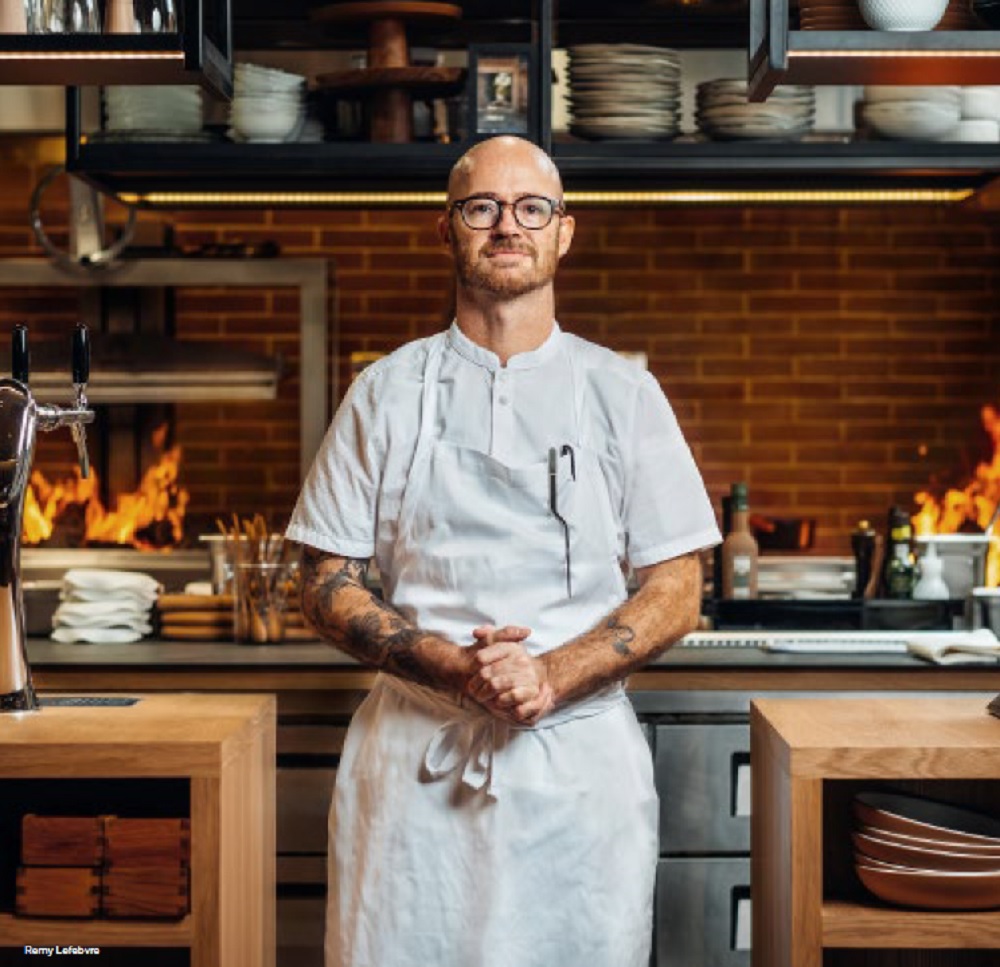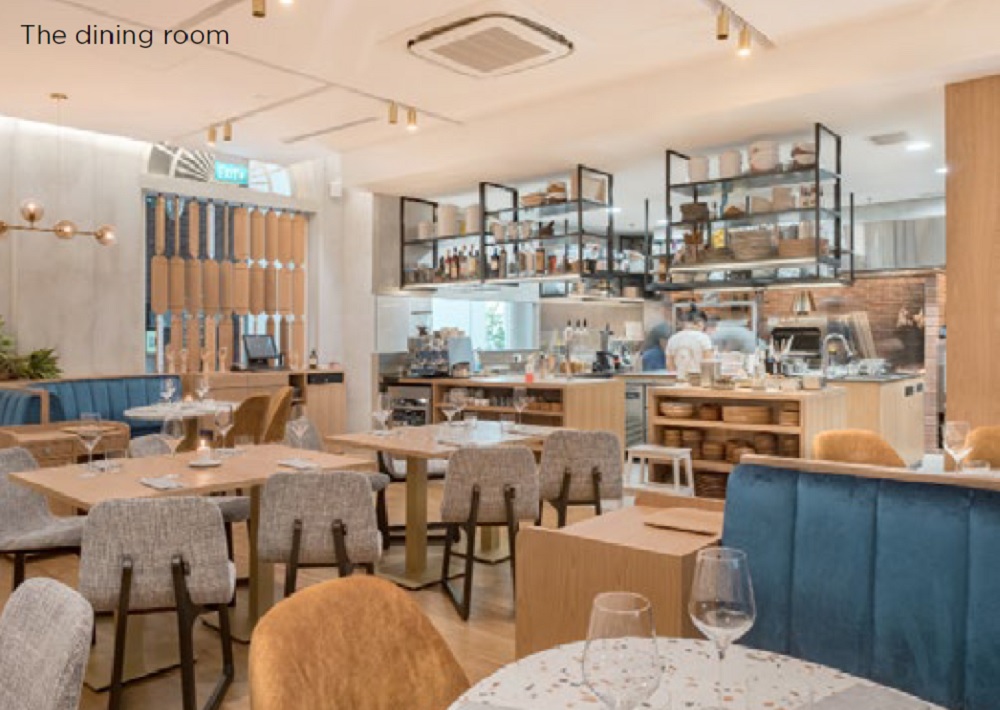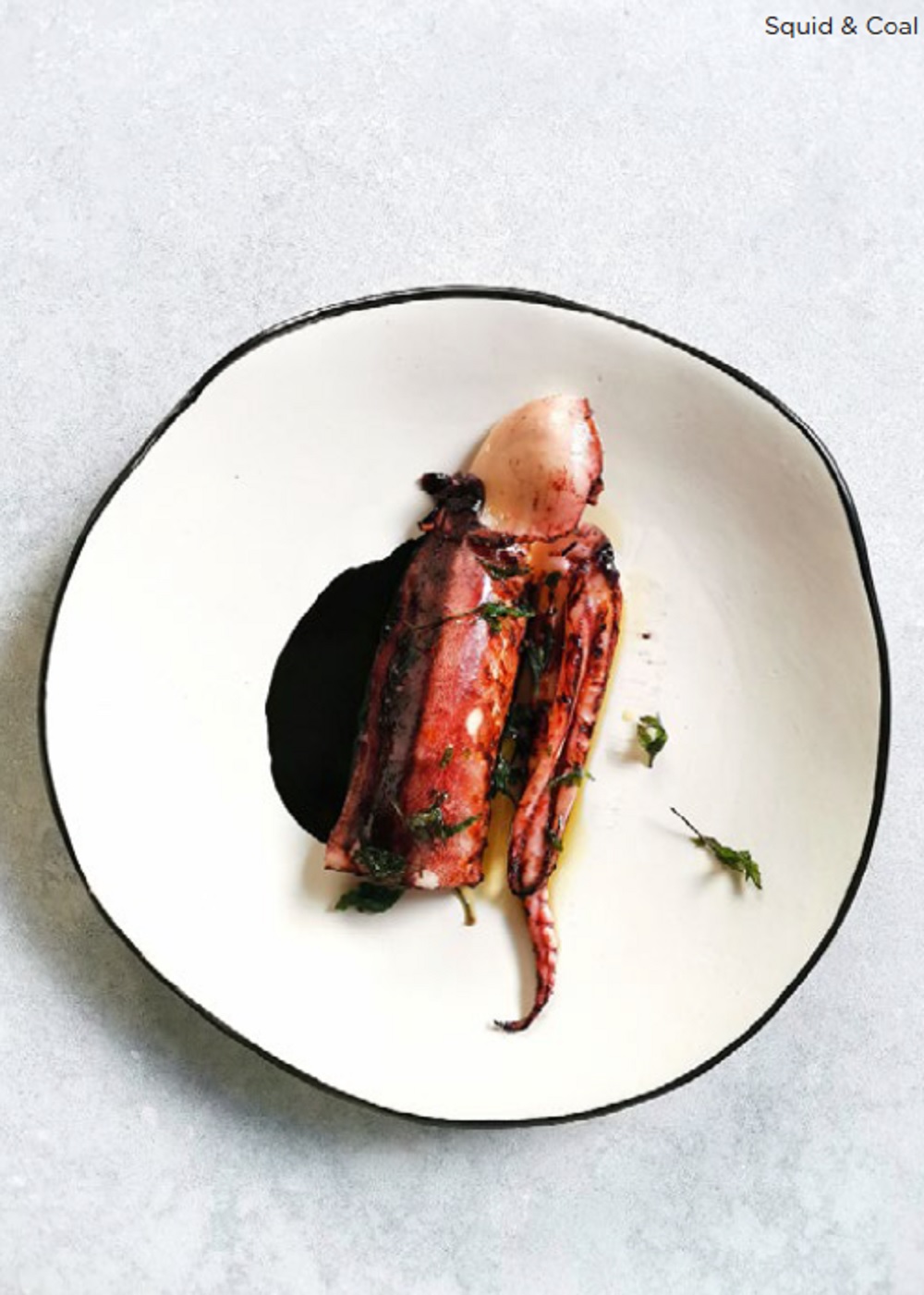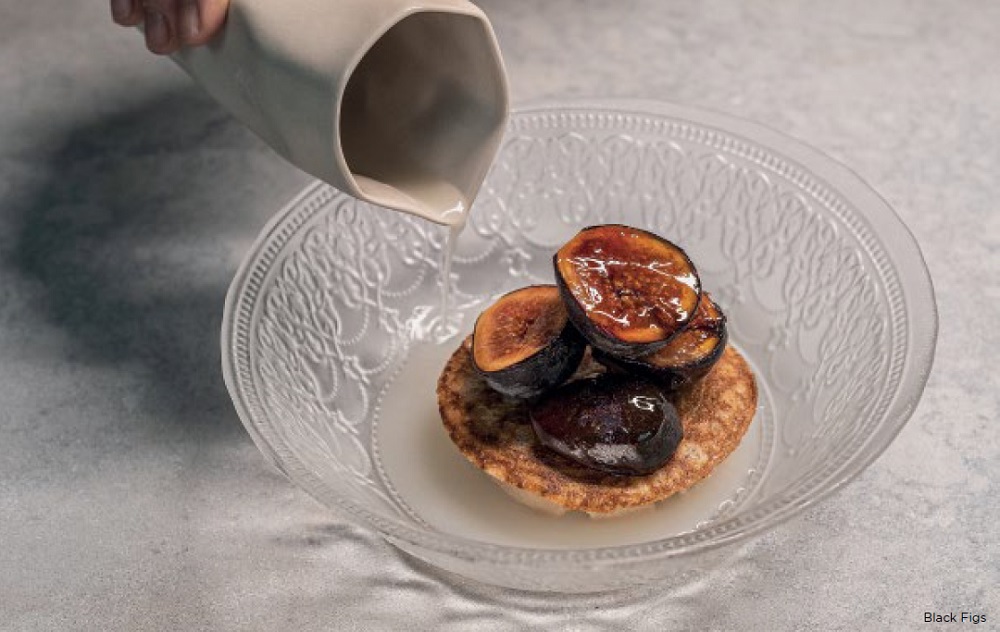Remy Lefebvre, chef-partner of Casa Restaurant, talks about his passion for contemporary woodfired gastronomy and his affinity for natural produce.

Remy Lefebvre is no stranger to the F&B scene with almost two decades of experience working in internationally renowned Michelin-starred restaurants and five-star hotels around the world. Growing up in the Ivory Coast before returning home to France, Lefebvre fine-tuned his culinary skills with professional stints in Mexico, Spain, the Middle East, India, Hong Kong, and the Caribbean before coming to Singapore in 2016.
The French chef’s most formative years as a fine dining chef were spent working in Spain with gastronomic masters at a time when the country was the epicentre of the “vanguard cuisine” phenomenon. Lefebvre’s first position here was helming Mexican restaurant El Mero Mero, before taking on the role as head chef at Butcher’s Block, Raffles Singapore. June this year saw Lefebvre launch his namesake Casa Restaurant by Remy Lefebvre as chef-partner. Located in Chjimes, it’s his ode to contemporary wood-fired gastronomy, and his first venture in a decade after he shuttered his first own restaurant in Barcelona in 2009.
Casa brings the unconventional 20-year odyssey of Lefebvre to ultimate fruition, showcasing the French chef’s journey on a plate as he shines the spotlight on real cooking using wood fire as his preferred medium. And it’s no coincidence that Lefebvre chose to call his new restaurant Casa, meaning home in Spanish, as it completely embodies the culmination of a lifelong quest, coming full circle after a lifetime of self-discovery, travel and exploration.

Lefebvre specialises in using wood fires cut from various trees, such as cherry oak, almond and the Japanese binchōtan charcoal to create his uniquely clean but bold flavours. “Different types of wood and charcoal can be used in the cooking process to flavour the dish as if they were a condiment,” says Lefebvre. A wood-fired Parilla grill with movable racks by Mibrasa, the Mibrasa charcoal oven, and an open wood-fire grill are all his prized possessions at Casa as he uses them to celebrate the bounty of different seasons. Growing up in Africa on a diet of seafood and tropical fruit, coupled with summers spent in Brittany and Normandy foraging for crabs, shrimps, clams and oysters along the coast and picking fruits and nuts in the fields and forests when in season, Lefebvre is passionate about preserving the natural environment. He uses only sustainable ingredients that are line-caught, responsibly sourced, traditionally farmed, organic, wild-foraged, and bio-dynamic to showcase the best of each season. He highlights seafood over meat and serves only one land animal on the bone a day on a rotational basis. He ages fish and beef to intensify flavour and improve texture.
Diners can expect menus to star seafood and vegetables, as they describe Lefebvre’s stories on a plate, with seasonally-inspired dishes, his Spanish-Mediterranean cooking style where fish, seafood and vegetables cooked with herbs and olive oil predominate, as well as personal experiences that have shaped him into the chef he is today.
What would you like your diners to appreciate most about contemporary wood-fired gastronomy?
This is a product-driven gastronomy where fire plays the role of seasoning through various cooking methods such as smoking and charring. We look at the products and apply cooking methods with precision and soul to give them a contemporary touch. The plating and references behind each dish are understated to let the ingredients shine, creating a dining experience that is simple, refined, and flavourful without any excess.
Why do you call wood-fire cooking real cooking?
Wood fire is wild and unpredictable. It is not as easy to control, but with time, you learn to work around it. As fire has a life of its own, cooking with it is all about experience and intuition. The end result is the expression of a product through simple, traditional cooking. We finish all our cooking on wood fire with a simple seasoning of sea salt, olive oil and peppercorn.

How has Spain influenced your vision and mission as a chef?
Prior to working in Madrid, I was a young man working in an international trade. When I stepped foot into Madrid at the age of 21, I applied for a job as a “kitchen commis” out of necessity. It was then that I realised I enjoyed kitchen work, which led to 10 years in the kitchen around Madrid, Toledo and Barcelona. With zero culinary experience before coming to Spain, I went through intense on-the-job training in Spanish kitchens.
As a young chef, your culinary foundation and knowledge are forged and set during the first few years of your career. While my global travels and experiences have some influence on the flavours of my dishes, they do not change the fundamentals ingrained in me from my training in Spain where I learnt vital lessons about freedom and respect in the kitchen, as well as the importance of improvising and enjoying the camaraderie of your colleagues in the restaurant. I realised that anything is possible if you are passionate and willing to work hard. I had no culinary experience at 21 years of age, but I had my own restaurant by 27.
My vision as a chef is to serve with honesty and hospitality from the heart. My mission is to provide the best environment for my colleagues to achieve their goals, and for our guests to have a memorable dining experience at Casa.
How hard or easy to procure responsibly-sourced, linecaught, organic and wild-foraged produce?
The choice to procure such produce is the result of personal engagement achieved through building relationships and trust with my partners and suppliers. There are producers, farmers, fishermen and suppliers around the world that I have worked with for more than 15 years. The easy part in using these products is that their quality ensures 70 percent of the dish’s success. The challenges come when ensuring consistency and building a team that is flexible, as we will not always have the same product to work with due to changes in weather and variations in the fishermens’ catch.
What is a no-no for you in the kitchen?
I believe in honesty and genuineness in delivering the best food and experience to our guests. It’s important to be dedicated and passionate in order to create this experience, so not having love for the craft is a no-no in my kitchen. My second no-no is produce from farmers who don’t practise the right farming or fishing habits.
